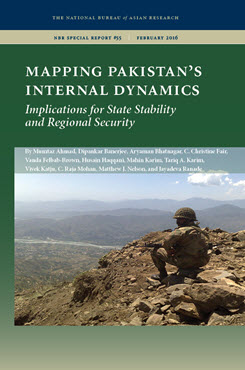Informal Agencies of Influence in Pakistan
The Interdependence of Social, Religious, and Political Trends
This essay argues that social, religious, and political trends tied to an expansion of Pakistan’s lower-middle classes have strengthened mafia-style politics in ways that undermine the legitimacy of the state.
EXECUTIVE SUMMARY
MAIN ARGUMENT
Informal agencies of influence in Pakistan are tied to three broad trends. The first trend unfolds in the domain of society at large and consists of a movement away from large landowners in favor of the rising lower-middle classes. The second trend takes place in the realm of religion and involves the decline of established religious scholars in favor of Pakistan’s freelancing and relatively undisciplined junior ulema. The third trend, unfolding in the sphere of local politics, involves a general shift away from the senior statesmen who sought to mold the formal legal landscape of Pakistan in favor of what I call Pakistan’s “petty parliamentarians.” This group of politicians does not seek to mold the law; rather, it seeks to determine who is held accountable to existing laws and, more importantly, who is not. Patterns of rural-to-urban migration in central Punjab, Khyber Pakhtunkhwa, and Baluchistan suggest that as the influence of informal politics increases, the legitimacy of the state is diminished. This pattern is unlikely to produce an explosive transformation in Pakistan. Nonetheless, it is likely to weaken the formal apparatus of the state (and those who engage with it) while strengthening the bonds between existing state actors and various urban and sectarian mafias.
POLICY IMPLICATIONS
- Given that much of the political action in Pakistan takes place at the level of “mafia” politics, policymakers must learn to navigate informal social, religious, and sectarian trends unfolding at this level.
- Moving beyond military, civilian, bureaucratic, business, NGO, and media elites, analysts must include an account of Pakistan’s youth and popular classes. Connecting elite and nonelite levels is necessary to appreciate the “informalization” of contemporary politics.
- Religious identification in Pakistan is directly underpinned by grassroots efforts to combine economic and political mobility with religious respectability. Analysts require a deeper understanding of the relationship between economic growth and sectarian competition.
Matthew J. Nelson is a Reader in the Politics Department at the School of Oriental and African Studies (SOAS) in London.


